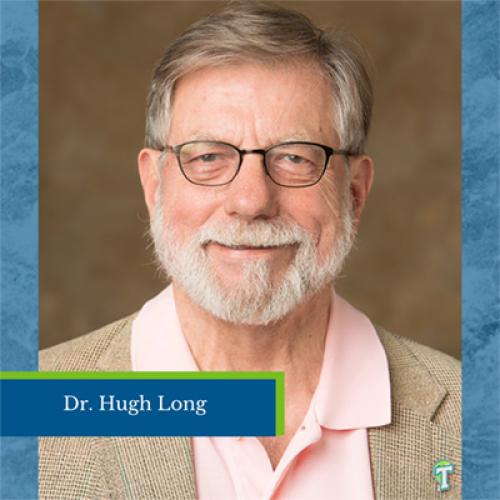After being elected to Phi Beta Kappa at Ohio State University as an undergrad, and going on to earn an MBA and PhD from Stanford, Hugh Long, professor of global health management and policy, believed his career path to be set. He had accepted a contract that would send him to New Orleans to join the faculty at the Tulane School of Business.
Prior to New Orleans, however, there would be a detour – and it would not be his last. Immediately upon graduating in 1973, Long would fulfill a commitment to the Ford Foundation to serve as a junior consultant to the Singapore Institute of Management. Singapore, a fledgling independent nation of three years, sought out Long to develop a curriculum to help build middle management skills among that country’s citizens.

After Singapore, Long believed, he would embark on his new career teaching in the Tulane School of Business. “When I showed up at Tulane and had my initial meeting with the dean of the business school… he said to me, ‘I know what we agreed to, but I have a favor to ask.’
The dean wanted Long to teach finance to public health students as a pilot for the hospital administration program. This new program, housed in the Tulane School of Public Health and Tropical Medicine, was funded by the Kellogg Foundation to expand the number of hospital administration programs in the country. Unlike similar programs at the time, Program Director Walter Burnett wanted to include business courses with the typical mix of management offerings. Teaching in a department of healthcare management was perhaps an unusual choice. It certainly was not on Long’s radar when he graduated from Stanford. “I was a brand new, untenured, assistant professor. What are you going to do when the dean asks for a favor?” Long laughs.
In the inaugural course offering, Long shared teaching responsibilities with Dr. Jim Miller, a tenured business professor. After that first semester, Miller decided it was an interesting experience, but that one semester was enough. Long chose, however, to stick with it. That decision possibly altered the course of his academic career.
“It was over those two to three years that I came to the realization that this is a big industry, a cottage industry at the time,” Long recalls. “Banks knew how to read a financial statement. Hospitals didn’t.” By specializing in healthcare finance and policy, he brought specialized knowledge to a growing field.
“Very few folks understood the economics and financials of healthcare. I just had to learn the language. I had this knowledge of how finance really works, and I could thrive in this environment.”
Long had joint appointments in both schools, long before that was as common as it is today. He later earned a law degree part time from Tulane, and at one point had academic relationships with all three schools.
This triumvirate of experience – business, health, and law – made him an invaluable asset as the department grew and transformed over the years. It also made him valuable beyond the university, and Long spent time in Washington D.C. advising on healthcare financing to the health subcommittees of both the Ways and Means Committee of the U.S. House of Representatives and the Finance Committee of the U.S. Senate. Long was also on the Medicare Geographic Classification Review Board under three U.S. presidents, reviewing and modifying the geographic status of hospitals for Medicare payment purposes, and chaired the board for six years.
Today, fifty years into his career, Long remains tapped into the fields he teaches. He is on the board of trustees of LCMC Health and on the governing board of Touro Infirmary. He also consults with multi-specialty group practices and hospital systems, providing in-house, on-site programs.
It’s not the career he envisioned in the late 60s, but, as he puts it, it’s one that has helped him make a contribution and develop a strong reputation.
“Why would I want to compete in the business school world when I could play in this arena and get a reputation publishing in the journals in this field where I wasn’t competing with Nobel Laureates. That was a big ‘a ha’ moment for me back in the early 70s.”
